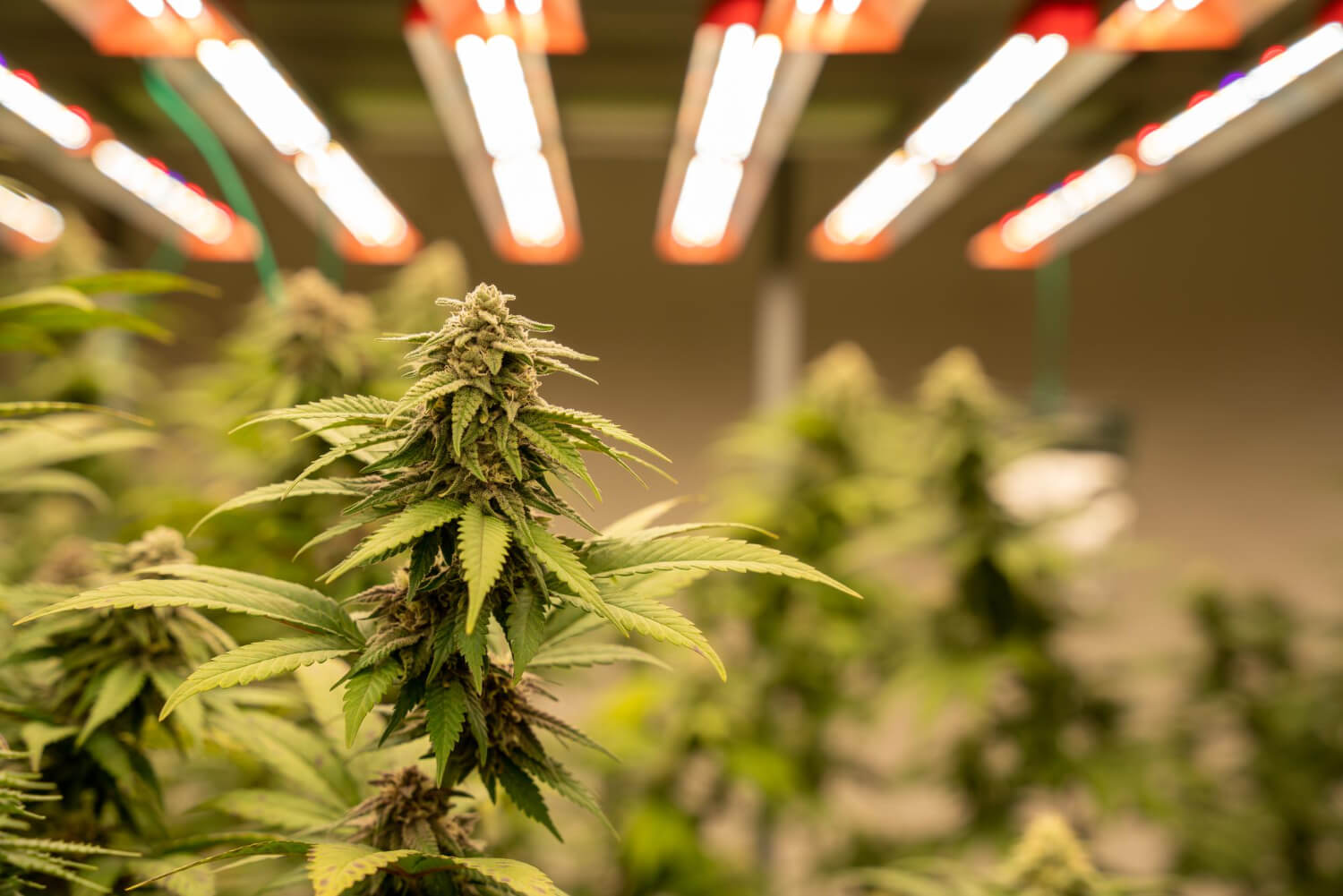In the ever-evolving landscape of cannabinoid science, where THC and CBD have taken center stage, a new player has emerged to pique the curiosity of researchers and consumers alike: Delta-8 Tetrahydrocannabinol. Join us on this exploration of “What is Delta-8,” where science, curiosity, and regulation intersect in its fascinating world.
A Definition of Delta-8 THC
Delta-8 Tetrahydrocannabinol, often referred to as Delta-8 THC, is a naturally occurring cannabinoid found in the cannabis plant. While structurally similar to the more well-known Delta-9 THC, which is responsible for the plant’s psychoactive effects, Delta-8 THC presents a unique molecular arrangement that results in its own unique characteristics.
Unlike Delta-9 THC, Delta-8 THC is typically found in lower concentrations, making it a rarer component of the cannabis plant. It is derived through a process of converting CBD into Delta-8 THC through selective manipulation of its molecular structure. This conversion can occur naturally but only in minute quantities and synthetically through laboratory processes.
While Delta-8 THC shares similarities with Delta-9 THC, its impact appears milder, offering consumers an ideal middle ground between the euphoric sensations of Delta-9 THC and the non-intoxicating qualities of CBD. This unique profile has spurred interest in exploring the different features of Delta-8 THC, from its healing properties to its legal implications.
The Chemical Structure of Delta-8 THC
Delta-8 THC’s distinct characteristics lie at the heart of its intricate chemical structure. While both Delta-8 THC and Delta-9 THC share a double bond in their molecular arrangement, the difference occurs in the placement of this bond.
This slight variation in the positioning of the double bond leads to notable differences in how the two cannabinoids interact with the endocannabinoid system. This structural change is responsible for Delta-8 THC’s comparatively gentle psychoactive effects, making it less potent than its Delta-9 counterpart.
The molecular rearrangement also affects how Delta-8 THC binds to the CB1 receptors within the brain, perhaps contributing to its reported milder impact on cognition and perception. This subtle structural variation illustrates the complex relationship between the molecular makeup of cannabinoids and their influence on human health.
The Effects of Delta-8 THC on the Human Body
Delta-8 THC’s interaction with the human body produces a range of responses that both intrigue and differentiate it from other cannabinoids. While Delta-8 THC does have psychoactive properties like its Delta-9 counterpart, users often report a milder, more balanced high with Delta-8 THC.
In contrast, this more subtle psychoactivity can offer a sense of euphoria and relaxation without the intensity that some individuals may find overwhelming when consuming Delta-9 THC. It’s important to note that individual responses can vary, and factors such as dosage, tolerance, and metabolism can influence the perceived effects.
Research into the therapeutic uses of Delta-8 THC is still in its infancy, but promising findings suggest a range of possible benefits. For example, a 2022 study published in the Journal of Cannabis Research indicates that Delta-8 THC could have antiemetic action, helping to alleviate nausea and vomiting in patients undergoing chemotherapy or experiencing other medical conditions.
Furthermore, its positive effects on appetite stimulation and anxiety reduction have drawn attention, suggesting potential applications for managing eating- and anxiety-related disorders. However, due to the evolving nature of cannabinoid research and the limited data available, more comprehensive studies are needed to validate and understand the full extent of these health benefits
The Legal Status of Delta-8 THC
The legal landscape surrounding Delta-8 THC is a complex web of ambiguity and debate in the United States. The legal status of Delta-8 THC varies from state to state. However, unlike CBD, which has been largely accepted for its non-intoxicating nature, Delta-8 THC’s mild psychoactivity raises concerns that it might be subject to regulations similar to those imposed on Delta-9 THC.
Some states have embraced its legality, while others have imposed restrictions or outright bans due to fears of its psychoactive qualities. This regulation disparity has created a patchwork of laws that can confuse consumers and businesses alike.
Internationally, the situation is equally intricate, with some countries outright banning all forms of THC while others have taken a more moderate stance. The lack of standardized international guidelines further complicates the legal understanding of Delta-8 THC on a global scale.
As discussions continue surrounding Delta-8 THC’s legal status, it becomes evident that the evolving nature of cannabinoid science has outpaced the development of consistent regulatory frameworks.
Delta-8 THC vs. Delta-9 THC vs. CBD
When it comes to cannabinoids, Delta-8 THC, Delta-9 THC, and CBD stand as three distinct players with varying effects, benefits, and risks. Delta-9 THC is renowned for its potent psychoactive nature, often leading to a sense of euphoria and altered perception.
By comparison, Delta-8 THC offers a less intense version of those sensations, making it an appealing option for those seeking a milder experience while still enjoying some psychoactivity.
CBD, on the other hand, lacks the psychoactive attributes of both Delta-8 and Delta-9 THC and is widely embraced for its medicinal properties without inducing intoxication.
The therapeutic applications associated with Delta-8 THC, including nausea relief and anxiety reduction, contribute to its growing popularity as an effective and versatile cannabinoid.
While Delta-8 THC offers a unique middle ground, it’s essential to consider any risks alongside its benefits. As with any psychoactive substance, caution is advised, and individual responses can vary widely. The lack of standardized regulations and research also highlights the need for informed decision-making. As the conversation around cannabinoids continues to evolve, Delta-8 THC is now a noteworthy contender in the landscape, offering a bridge between euphoria and well-being.
Potential Risks and Side Effects of Delta-8 THC
Delta-8 THC is an intriguing cannabinoid, but its use should be approached with mindfulness and awareness of potential risks. Like any substance that interacts with the body’s systems, Delta-8 THC may come with a few unwanted effects.
Short-term effects can include:
- Dry mouth
- Red eyes
- Increased heart rate
- Altered coordination
However, these symptoms are generally mild and temporary.
Due to limited research, the long-term effects and risks of Delta-8 THC are not yet well understood. As with Delta-9 THC, there’s the possibility of developing tolerance and dependence with regular use. Individuals susceptible to anxiety or paranoia may also experience heightened symptoms, even though Delta-8 THC is generally considered less anxiety-inducing than Delta-9 THC.
As with any health-related decision, it’s advisable to consult a healthcare provider before incorporating Delta-8 THC into your wellness routine. They can offer personalized guidance based on your medical history, current health status, and other medications you may be taking. Responsible use, moderation, and starting with low doses are essential practices to minimize possible risks and adverse reactions. Additionally, understanding the legal status of Delta-8 THC in your region is crucial to avoid any legal complications.
The Current Research on Delta-8 THC
The scientific exploration of Delta-8 THC is a burgeoning field that holds both promise and complexity. Researchers have made strides in uncovering its unique characteristics and future applications.
Preliminary studies suggest that Delta-8 THC could effectively manage symptoms such as anxiety and depression, which may make it a valuable option for individuals seeking alternative medical treatments.
However, the research landscape remains in its infancy, with much left to uncover. Rigorous, comprehensive studies are needed to fully understand the extent of Delta-8 THC’s medicinal value, as well as its long-term effects on health. Moreover, due to its structural similarity to Delta-9 THC, questions arise regarding its impact on cognitive function, particularly in higher doses and over extended periods.
One of the challenges in researching Delta-8 THC lies in the shifting legal landscape and inconsistent regulations that may impede thorough investigation. As regulatory frameworks evolve, researchers and institutions face obstacles in conducting studies that adhere to strict scientific standards. Thus, the current understanding of Delta-8 THC remains dynamic and open to future revelations.
Conclusion
As a relatively new cannabinoid, Delta-8 THC shines, offering a unique balance that sets it apart from Delta-9 THC and CBD. Its distinctive molecular structure leads to milder psychoactivity, making it appealing to those seeking less intense effects. This compound has the ability to make a valuable contribution to health and wellness, particularly in the management of unwelcome symptoms like an upset stomach.
However, the legal grey areas surrounding Delta-8 THC make informed decisions even more critical. Awareness of Delta-8 THC and other cannabinoids’ evolving landscape will allow cannabis enthusiasts to make informed decisions prioritizing curiosity and well-being.
FAQs
What is the legal status of Delta 8 THC?
The legal status of Delta 8 THC varies by jurisdiction. It’s important to check local laws and regulations for accurate information regarding its legality in your area.
Is Delta-8 safe to use?
Even though Delta-8 THC safety has not been fully established, Delta-8 is regarded as safe for most people. While it’s much less potent than Delta-9 THC, it’s still important to use caution. Consult a healthcare professional before use, especially if you have underlying health conditions or are taking medications.
Does Delta-8 show up on a drug test?
Yes, Delta-8 THC can show up on a drug test. Most standard drug tests are designed to detect THC metabolites, and Delta-8 THC shares structural similarities with Delta-9 THC. Using Delta-8 products might lead to a positive result on a drug test.













